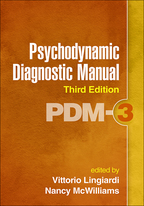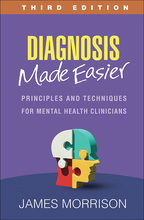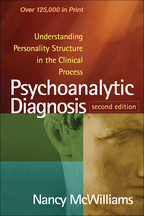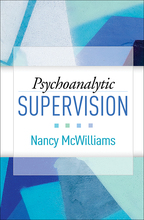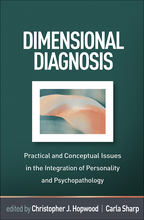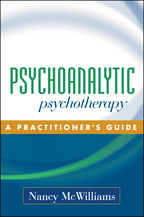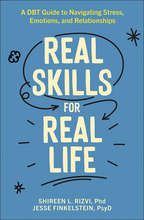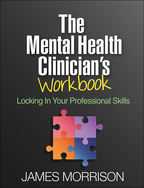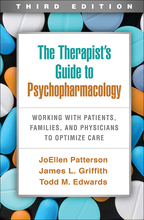Psychodynamic Diagnostic Manual
Third Edition
PDM-3
Edited by Vittorio Lingiardi and Nancy McWilliams
HardcoverPaperbacke-bookprint + e-book
Hardcover
orderJanuary 5, 2026
ISBN 9781462558728
Price: $128.00 1058 Pages
Size: 7" x 10"
Paperback
orderJanuary 6, 2026
ISBN 9781462558711
Price: $85.001058 Pages
Size: 7" x 10"
Read a Q&A with featured author, Vittorio Lingiardi!
Sign up for emails on upcoming titles by Nancy McWilliams (with special discounts)!
Sign up for emails on upcoming titles by Nancy McWilliams (with special discounts)!
“The depth is impressive….Recommended. Upper-level undergraduates through professionals/practitioners.”

—Choice Reviews (on the second edition)
“No matter what your theoretical framework, this book and its ideas will work for you. Truly a mind-opening experience, and one which makes clinicians stop and think about their current therapeutic orientation. A must read for open-minded clinicians willing to go beyond the confines of the current diagnostic models. *****!”

—Doody's Review Service (on the second edition)
“Psychoanalysis is often akin to a Tower of Babel, with so many ways to describe a patient but without a unifying language that lets analysts around the world share and learn from each other’s experiences. PDM offers a creative solution to this dilemma and an essential guiding frame for those learning the craft. It also offers a creative functional counterpoint to the push for categorical diagnoses, which too often overlook the rich nuance in an individual patient’s struggles and needs. That PDM is now in its third edition speaks to how essential a role it already plays in sustaining and growing psychoanalytic practice around the world.”

—Linda C. Mayes, MD, Arnold Gesell Professor of Child Psychiatry, Pediatrics, and Psychology and Chair, Yale Child Study Center, Yale School of Medicine
“The PDM is far more useful in clinical practice than the DSM or ICD. Psychopathologies simply cannot be adequately conceptualized in purely nomothetic terms; to ignore the idiographic is to ignore the most essential feature of the mind—namely, that it is subjective. The inclusion of some neuropsychoanalytic constructs in this edition is a particularly welcome development.”

—Mark Solms, PhD, Co-Chair, International Neuropsychoanalysis Society
“A landmark achievement. Fully revised, PDM-3 offers a comprehensive lifespan framework that captures the complexity of human functioning through a dimensional, person-centered lens. It integrates contemporary research—from neuroscience and outcome studies to cultural and developmental psychology—while remaining grounded in core psychodynamic traditions such as object relations, ego psychology, and relational theory. PDM-3 adds vital clinical nuance to classification by emphasizing subjective experience, developmental context, and therapeutic relevance, and by incorporating both nomothetic and idiographic perspectives. Ideal for graduate training in diagnosis and assessment, PDM-3 is clinically meaningful and empirically grounded, revitalizing psychodynamic assessment for today’s mental health landscape.”

—Peter Lilliengren, PhD, Department of Psychology, Stockholm University, Sweden
“PDM-3 is an extraordinary collaborative achievement, with chapter editors and consultants who are among the most talented people in our profession. The volume champions psychodynamic thinking, including ego psychology, object relations, self psychology, and relational psychoanalysis. With sensitivity to developmental phases, culture, context, and diversity, PDM-3 makes diagnosis clinically meaningful beyond the narrow categories of the DSM, and includes dialogue with cognitive science and neuroscience. The third edition is easy to read, is organized chronologically beginning with infancy, and includes more recent empirical literature. This book is an invaluable resource for researchers as well as clinicians.”

—Beatrice Beebe, PhD, Clinical Professor, Columbia University Medical Center, New York State Psychiatric Institute
—Choice Reviews (on the second edition)
“No matter what your theoretical framework, this book and its ideas will work for you. Truly a mind-opening experience, and one which makes clinicians stop and think about their current therapeutic orientation. A must read for open-minded clinicians willing to go beyond the confines of the current diagnostic models. *****!”
—Doody's Review Service (on the second edition)
“Psychoanalysis is often akin to a Tower of Babel, with so many ways to describe a patient but without a unifying language that lets analysts around the world share and learn from each other’s experiences. PDM offers a creative solution to this dilemma and an essential guiding frame for those learning the craft. It also offers a creative functional counterpoint to the push for categorical diagnoses, which too often overlook the rich nuance in an individual patient’s struggles and needs. That PDM is now in its third edition speaks to how essential a role it already plays in sustaining and growing psychoanalytic practice around the world.”
—Linda C. Mayes, MD, Arnold Gesell Professor of Child Psychiatry, Pediatrics, and Psychology and Chair, Yale Child Study Center, Yale School of Medicine
“The PDM is far more useful in clinical practice than the DSM or ICD. Psychopathologies simply cannot be adequately conceptualized in purely nomothetic terms; to ignore the idiographic is to ignore the most essential feature of the mind—namely, that it is subjective. The inclusion of some neuropsychoanalytic constructs in this edition is a particularly welcome development.”
—Mark Solms, PhD, Co-Chair, International Neuropsychoanalysis Society
“A landmark achievement. Fully revised, PDM-3 offers a comprehensive lifespan framework that captures the complexity of human functioning through a dimensional, person-centered lens. It integrates contemporary research—from neuroscience and outcome studies to cultural and developmental psychology—while remaining grounded in core psychodynamic traditions such as object relations, ego psychology, and relational theory. PDM-3 adds vital clinical nuance to classification by emphasizing subjective experience, developmental context, and therapeutic relevance, and by incorporating both nomothetic and idiographic perspectives. Ideal for graduate training in diagnosis and assessment, PDM-3 is clinically meaningful and empirically grounded, revitalizing psychodynamic assessment for today’s mental health landscape.”
—Peter Lilliengren, PhD, Department of Psychology, Stockholm University, Sweden
“PDM-3 is an extraordinary collaborative achievement, with chapter editors and consultants who are among the most talented people in our profession. The volume champions psychodynamic thinking, including ego psychology, object relations, self psychology, and relational psychoanalysis. With sensitivity to developmental phases, culture, context, and diversity, PDM-3 makes diagnosis clinically meaningful beyond the narrow categories of the DSM, and includes dialogue with cognitive science and neuroscience. The third edition is easy to read, is organized chronologically beginning with infancy, and includes more recent empirical literature. This book is an invaluable resource for researchers as well as clinicians.”
—Beatrice Beebe, PhD, Clinical Professor, Columbia University Medical Center, New York State Psychiatric Institute

